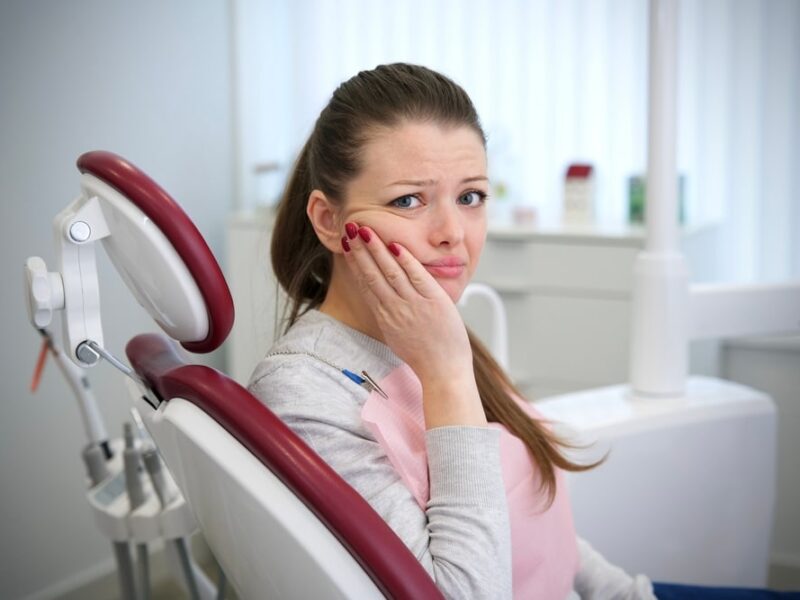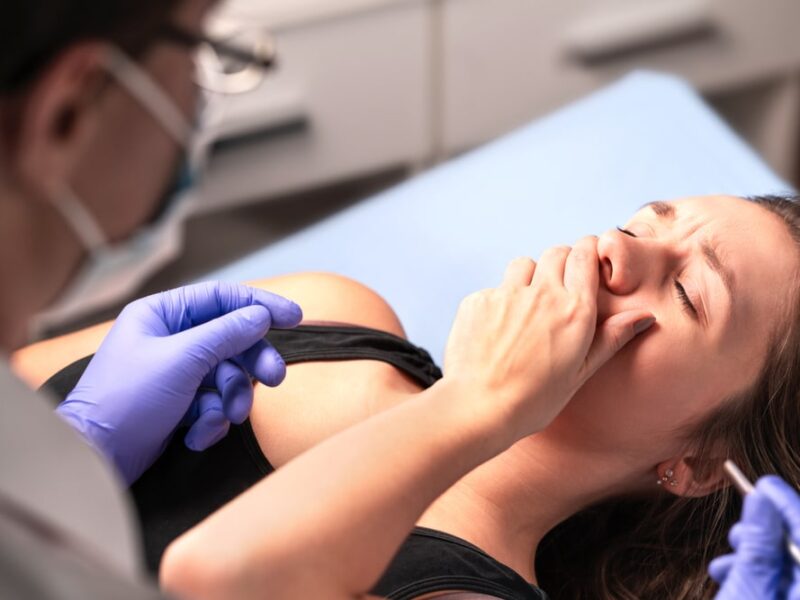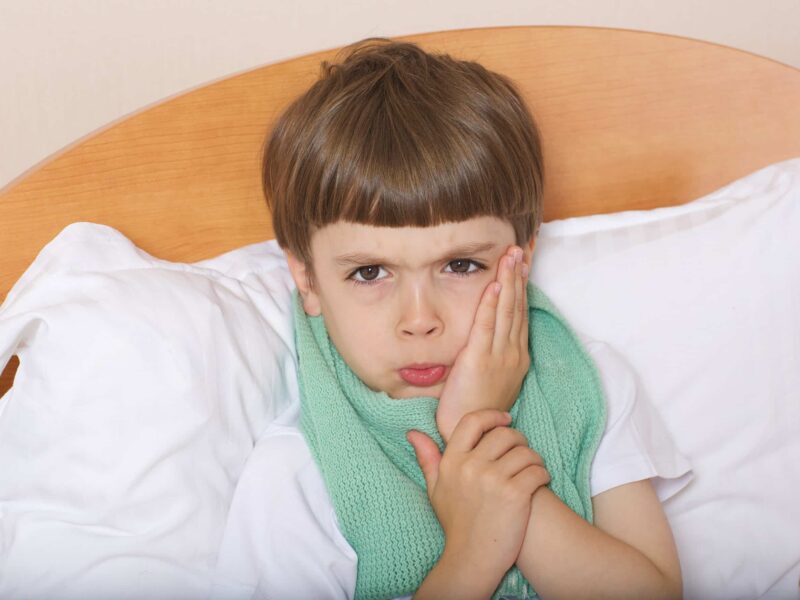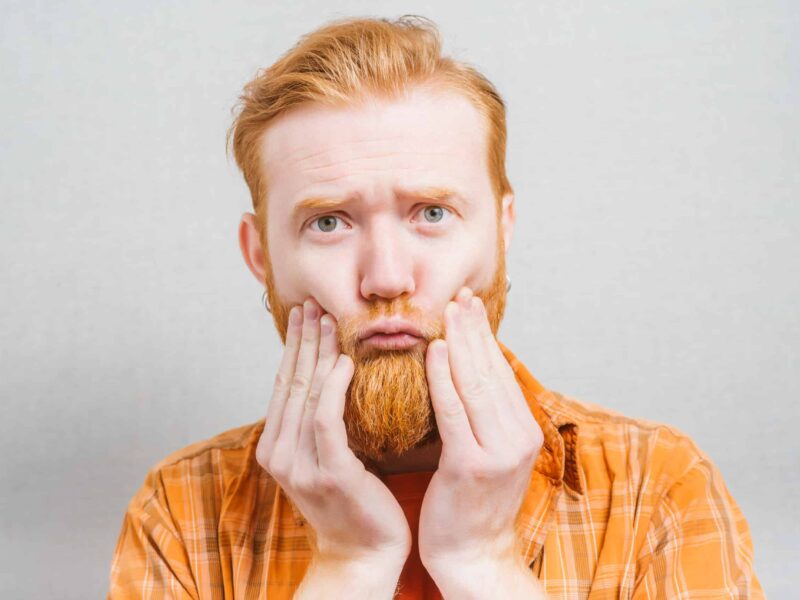Emergency Dentist Brisbane: Fast, Clear Steps When a Tooth Is Injured
Teeth have a way of causing trouble at the most inconvenient times — a stray cricket ball, a weekend bike tumble, or even a bite on something harder than expected. We may all feel rattled and unsure about what matters most in the moment. Our Emergency Dentist Brisbane has shared a few simple steps to help you protect your tooth and buy precious time until proper care is given.
When to Call 000 or Go Straight to Hospital
- Heavy bleeding you can’t stop
- Suspected broken jaw
- Breathing difficulties
- Exposed bone/facial trauma
Need an emergency dentist now? Call Pure Dentistry on 07 3343 4869. You can book online 24/7, and after‑hours care is by appointment, subject to availability.
Clinic location: 11/1932‑1974 Logan Rd, Upper Mount Gravatt QLD 4122.

TL;DR First Aid: Quick Survival Guide
What to do before you see our Emergency Dentist Brisbane
- Knocked-out adult tooth: Handle by crown only, rinse gently in milk/saline, replant if possible, otherwise store in milk/saliva. Get urgent care within 30–60 minutes from an experienced Brisbane Dentist.
- Knocked-out baby tooth: Do not replant. See a Paediatric Dentist Brisbane quickly.
- Chipped/broken tooth: Save fragments in milk, cover sharp edges with sugar-free gum or wax, call your dentist.
- Severe toothache/swelling: Rinse with warm salty water, take pain relief as advised, seek urgent care (infections can spread).
- Soft tissue injuries: Rinse, apply clean gauze with pressure, cold pack for swelling, seek dental or hospital help.
What Counts as a Dental Emergency?
Some dental problems can wait a day or two, but others need help straight away. Let us help you understand which situations can’t be ignored and which ones are safe to manage until you can see a dentist:
Urgent (same day)
Knocked-Out Permanent Tooth
When an adult tooth comes out completely, time is critical. The best chance of saving it is within the first hour. Pick it up by the crown (the white part), keep it moist in milk or saliva, and see a dentist immediately.
Displaced Tooth
A displaced tooth has shifted from its normal position but is still in the mouth. This can make the tooth look crooked, longer, or shorter than usual. Quick treatment helps the tooth heal and reduces the chance of long-term damage.
Tooth Pushed Out or Elongated
The tooth looks longer because it has been partly pulled out of its socket. It may feel loose or tender when biting. A dentist needs to reposition and stabilise it quickly.
Tooth Pushed Sideways or Into the Socket
The tooth has been forced sideways or deeper into the bone. This can make it look out of line with the neighbouring teeth. Prompt care is needed to move it back and secure it in place.
Multiple Teeth Moving Together (Mobile Bone Segment)
If several teeth move as one unit when touched, the bone holding them has fractured. This is more serious than a single loose tooth. Urgent stabilisation by a dentist or oral surgeon is essential.
Jaw Fracture
A broken jaw often causes severe pain, swelling, and difficulty closing the mouth properly. It may also change how your teeth fit together. This type of injury requires hospital treatment straight away.
Uncontrolled Bleeding
Bleeding that doesn’t slow down after firm, gentle pressure is an emergency. It may come from a tooth socket, gums, or soft tissues. Continuous bleeding needs urgent dental or hospital care.
Dental Abscess With Fever or Swelling
An abscess is a pocket of infection in or around a tooth. If it spreads, it can cause swelling in the face or difficulty opening the mouth, sometimes with fever. This is a serious infection that requires immediate treatment.
Large Lip or Gum Cuts With Embedded Tooth Fragments
Deep cuts in the lips or gums can trap pieces of broken tooth or debris inside. These injuries often bleed heavily and can be painful. They need urgent cleaning, removal of fragments, and stitches.
Semi-Urgent (within 24 hours)
Chipped or Broken Tooth
A chipped or broken tooth is when part of the visible surface cracks or breaks away. It may feel sharp against the tongue and can sometimes cause mild pain. While not always an emergency, it should be repaired quickly to prevent further damage.
Broken Filling or Dental Restoration
Fillings, crowns, or veneers can come loose or break, leaving the tooth unprotected. This may cause sensitivity to hot or cold foods. An experienced Emergency Dentist Brisbane can replace or repair the restoration before the tooth becomes more vulnerable.
Loose Tooth Without Severe Pain (Concussion or Subluxation)
Sometimes a tooth feels wobbly after an impact but hasn’t moved far from its normal spot. It might be sore when biting, but it usually isn’t very painful. Seeing a dentist soon helps to stabilise it and check for hidden damage.
Gum or Lip Cuts Without Heavy Bleeding
Small cuts in the lips or gums can be uncomfortable but usually stop bleeding on their own. They often heal well with simple home care, like rinsing gently with salt water. A dentist can still check for trapped debris or tooth fragments.
Root Fracture Without Severe Displacement
The root of the tooth may crack while the visible crown looks unchanged. This can make the tooth sensitive or slightly loose. Early treatment helps protect the tooth and prevent more serious problems later.
Non-Urgent
Minor Chips
A small chip in the enamel may look rough or uneven, but usually doesn’t hurt. Because the inner part of the tooth isn’t exposed, it isn’t an emergency. A dentist can smooth or repair it for comfort and appearance.
Lost Crown Without Pain
Sometimes a crown or cap can fall off without causing pain. The tooth underneath may feel a little sensitive, but it isn’t usually urgent. It’s best to book a dentist soon to have it re-cemented or replaced.
Mild Sensitivity
Teeth may twinge with hot, cold, or sweet foods, but then settle down. This kind of sensitivity is common and often linked to enamel wear or gum recession. A dentist can check the cause and suggest simple treatments to reduce discomfort.

Step-by-Step Guides for Common Emergencies
Tooth accidents can happen fast, and in the rush, you may not know what to do first. These short guides give you clear, calm steps you can follow right away, before a dentist steps in:
Knocked-Out Permanent Tooth
Immediate actions at home: Pick up the tooth by the crown, rinse gently with milk if dirty, and try to place it back in the socket if you can. If not possible, keep it moist in milk or inside your cheek. Get to an experienced Emergency Dentist Brisbane straight away — every minute counts.
What NOT to do: Don’t scrub the root or wash it under tap water, as this damages delicate cells needed for healing.
What the dentist will do: They will replant the tooth, secure it with a splint, and may prescribe antibiotics or review your tetanus protection.
Knocked-Out Baby Tooth
Why not to replant: Baby teeth should not be pushed back in, as this can harm the adult tooth developing underneath.
How to comfort your child & when to see a paediatric dentist: Give reassurance, offer a cold compress for swelling, and see a paediatric dentist to check the area. You can contact Dr Ellie Nadian, our professional kids dentist in Brisbane.
Long-term monitoring: The dentist will keep an eye on how the permanent tooth develops over time.
Chipped or Broken Teeth
First aid at home: Rinse your mouth with warm water and place gauze if there’s bleeding.
Importance of bringing fragments: Save any broken pieces in milk or a clean container, as they may be bonded back.
Temporary relief until dental visit: Use dental wax or sugar-free chewing gum to cover sharp edges and avoid cuts on your tongue or lips.
Loose, Displaced, or Pushed-in Teeth
How to identify: The tooth may look longer, shorter, or tilted, and will usually feel wobbly.
Don’t push back yourself: Never try to force the tooth back into position, except for a fully knocked-out permanent tooth following first-aid advice.
How dentists stabilise with splints: The dentist will gently reposition the tooth and use a small wire or plastic splint to hold it in place while it heals.
Toothache & Infections
Signs of infection: Look for swelling in the face, fever, or spreading pain.
Why dental infections are medical emergencies: Infections can spread quickly and, in rare cases, affect breathing or overall health.
Pain management at home: While you make your way to the dentist, use over-the-counter pain relief as directed and apply a cold pack to reduce swelling.
Soft Tissue Injuries (lips, cheeks, tongue, gums)
How to control bleeding: Apply firm but gentle pressure with clean gauze or a damp cloth.
When stitches may be needed: Deep cuts that keep bleeding, or those that cross the lip line, often need stitches for proper healing.
Why fragments sometimes embed in cuts: Pieces of tooth or grit can lodge in wounds, so a dentist may need to clean and remove them carefully.

Children’s Dental Emergencies (Special Considerations)
A knocked tooth or a sudden bump to the mouth can leave kids in tears and parents stressed. Here are some simple, practical advice to help you feel more in control in times of dental emergencies for kids.
Avulsed Baby Teeth
If a baby tooth is knocked out, don’t try to put it back in. Doing so can damage the adult tooth that is still developing underneath the gums. Instead, comfort your child, stop any bleeding with gentle pressure, and see a Brisbane Paediatric Dentist immediately to check everything is healing as it should.
Intrusions & Displacements
Sometimes a tooth is pushed up into the gum or moved out of place. In many cases, these injuries are simply watched over time rather than treated right away. A paediatric dentist will guide you on whether the tooth will correct itself or if it needs further care.
Common Signs of Complications
Keep an eye out for a tooth that changes colour, if the gum becomes swollen, or if your child complains of new pain — these can be signs of infection. If you notice any of these changes, book an appointment with a paediatric dentist promptly. Early review makes it easier to protect the permanent teeth growing beneath.

Why Dental Injuries Happen & How to Prevent Them
Teeth often get injured in everyday situations — during sports, a fall, or even a small accident at home. Some people are also more prone to dental injuries because of the way their teeth or lips are shaped.
Common Causes
- Sports and recreational activities (football, cricket, basketball, netball, cycling, skating)
- Falls at school, home, work, or in public spaces
- Bike, scooter, or skateboard accidents (especially common in children and teens)
- Road accidents or workplace injuries (more often in adults)
- Rough play or accidental knocks from others
- Biting down on hard foods or objects
Risk Factors
- Front teeth that stick out (protruding incisors)
- Limited lip coverage, giving teeth less natural protection
- Not wearing a mouthguard during contact sports
- Weakened teeth from decay, large fillings, or grinding (more common in adults)
- Existing dental work, such as crowns or bridges, that can break more easily
- Still-developing coordination in young children, making trips and falls more likely
How to Prevent Dental Emergencies
- Wear a custom mouthguard during contact sports or high-risk activities (visit a kids dentist in Brisbane so that they can make a custom mouthguard for your child to wear during sports)
- Use helmets and protective gear when cycling, skating, or scootering
- Address protruding teeth early with orthodontic advice if needed
- Schedule regular dental check-ups to catch problems before they weaken teeth
- Make home and play areas safe for children to reduce fall risks

What to Expect at An Emergency Dentist in Brisbane
A visit to our Brisbane dental clinic is all about keeping you comfortable while we work out the best way to save and protect your tooth. Here’s what usually happens during an emergency appointment:
History and Examination
We’ll start by listening to what happened and how you’re feeling, then carefully check your mouth. Targeted X-rays or photos may be taken to see the full picture.
Repositioning and a Flexible Splint
If a tooth has been moved out of place or a small fracture is found, we may gently guide it back and support it with a thin, flexible splint. This usually stays on for about two weeks, helping the tooth heal in the right position.
Pulp and Nerve Care
Sometimes the inner nerve of a tooth is affected, and we’ll plan the best way to look after it. That might mean careful monitoring or, if needed, root canal therapy at the right time.
Wound Care
Cuts to the lips, gums, or inside the mouth are cleaned and, if necessary, closed with small stitches. This keeps the area tidy and helps it heal more comfortably.
These steps follow the International Association of Dental Traumatology (IADT) 2020 guidelines, which are the current global standard. (White Rose Research Online)
Where to Get Help in Brisbane Right Now
- Pure Dentistry, Upper Mount Gravatt. Phone 07 3343 4869. After‑hours by appointment and online booking 24/7. Address 11/1932‑1974 Logan Rd, Upper Mt Gravatt QLD 4122. Convenient to Brisbane’s southern suburbs. (Dentist Brisbane)
- Hospital Care for Severe Injuries such as suspected jaw fracture or complex facial trauma: Royal Brisbane Hospital Emergency Department
- Queensland Public Advice Line if you are unsure whether symptoms are dental or medical: 13 HEALTH (13 43 25 84).
Frequently Asked Questions
How soon should I be seen after a knocked-out adult tooth?
Right away. The best outcome is when the tooth goes straight back into its socket on the spot. If that’s not possible, keep it moist in milk, your own saliva, or saline, and get to a dentist urgently. Every minute counts because the living fibres on the root need to stay alive for the tooth to reattach.
Can a broken tooth wait until Monday?
A tiny chip in the enamel can usually wait a short while. But if the tooth is painful, has a sharp edge cutting your cheek or tongue, or if you can see a pink spot (which means the nerve is showing), it needs to be looked at the same day. If you’re unsure, it’s always best to call 07 3343 4869 and get advice.
My toddler knocked out a tooth. Should I put it back?
No — baby teeth should never be pushed back in. Putting them back can damage the developing adult tooth underneath. Make an urgent appointment with a Brisbane Paediatric Dentist so they can check and monitor the area.
What if I have jaw pain after a high-speed impact?
Go straight to the hospital. Pain after a hard knock could mean a broken jaw or several teeth and bone moving together. These injuries need emergency assessment and treatment by specialists in the hospital setting.

What If I Have Severe Dental Anxiety?
If the thought of sitting in the chair makes your heart race, we want you to know that there are safe, proven options to help you feel calm and comfortable.
Some patients find relief with Happy Gas, a gentle inhalation method that reduces nervousness and wears off quickly after treatment. Others prefer a deeper level of relaxation through IV Sedation or Twilight Sedation, where you remain responsive but much less aware of the procedure and in a dream-like state. For those who need an even deeper solution, certain treatments can be carried out through Sleep Dentistry in Brisbane under General Anaesthesia.
Brisbane Dental Sleep Clinic explains that Sleep Dentistry Brisbane can ease the discomfort often caused by severe dental anxiety.
Pure Dentistry: Your Emergency Dentist in Brisbane
If you are dealing with a toothache, knocked‑out tooth, chipped or cracked tooth, or dental infection, call 07 3343 4869. Online booking is available 24/7, and after‑hours urgent care is by appointment, subject to availability.
Location: Upper Mount Gravatt, close to Brisbane southside. (Emergency Dentist Brisbane)
References and High‑Quality Guidance
- Brisbane Paediatric Dentist Website
- Brisbane Kids Dentist Website
- Brisbane Dental Sleep Clinic Website
- IADT 2020 Guidelines: Avulsion of permanent teeth. Practical first aid steps and clinician protocols.
- IADT 2020 Guidelines: Fractures and luxations of permanent teeth. Management pathways and splinting durations.
- IADT 2020 Guidelines: Injuries in the primary dentition. Do not replant avulsed baby teeth.
- Queensland Health: Dental emergencies fact sheet and emergency dental information, including advice not to replant baby teeth and how to store an avulsed permanent tooth.
- Risk factors: Increased overjet is associated with a higher risk of traumatic dental injuries.
- Local care pathways: Royal Brisbane and Women’s Hospital OMFS on‑call details for facial fractures and lacerations.
- Pure Dentistry Emergency Dentist in Brisbane Website